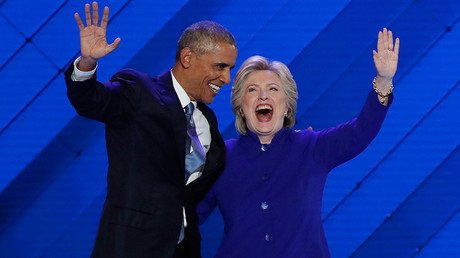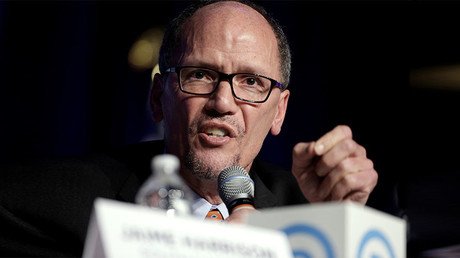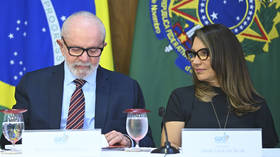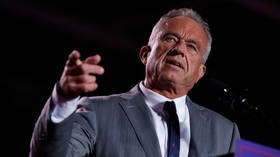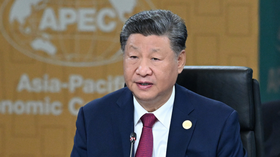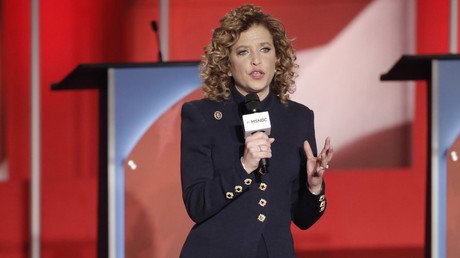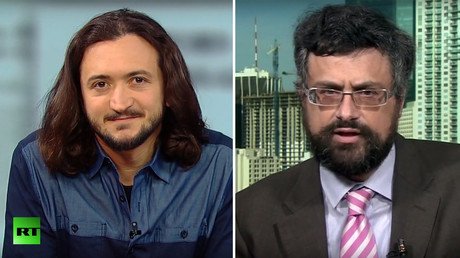Ex-DNC chair’s office may have attempted 'unsolicited contact' – Sanders lawsuit attorneys
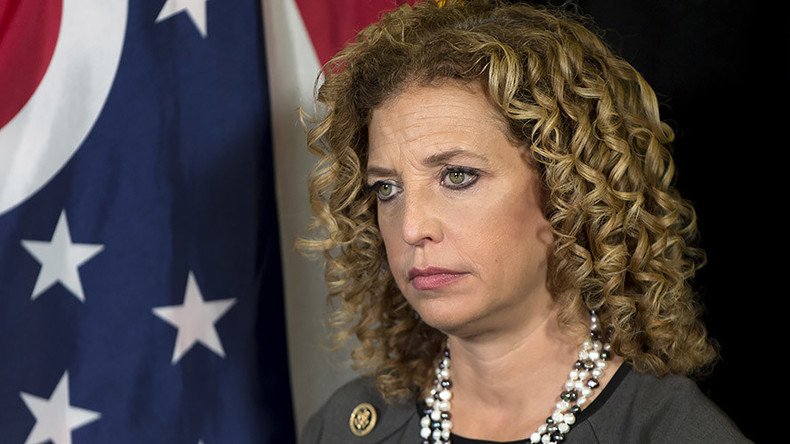
Three law firms representing plaintiffs in a lawsuit against the Democratic National Committee and former DNC chair Debbie Wasserman Schultz said they received "unsolicited direct contact" allegedly from a phone number connected to her district office.
The law firms are involved in a class action lawsuit against the DNC and Wasserman Schultz that claims seven different violations – including fraud, negligent misrepresentation, unjust enrichment and negligence – connected to revelations that the party essentially rigged its 2016 presidential primary process for the benefit of eventual Democratic presidential nominee Hillary Clinton. The firms represent a group of supporters for Senator Bernie Sanders, Clinton's primary opponent.
On June 1, the law firms filed a notice to the US District Court for the Southern District of Florida that alleged "unsolicited direct contact by your client Debbie Wasserman Schultz" through a caller that seemed to use a voice anonymizer. The number where the call originated, the firms said, is the phone number to Wasserman Schultz's district office in Aventura, Florida.
‘Total blackout’: Lawyer suing DNC for fraud speaks out on lack of media coverage https://t.co/K12qeoMYJh
— RT America (@RT_America) May 19, 2017
The phone number, the notice said, was captured in a screenshot by the firm that received the call.
On the afternoon of June 1, the "caller refused to identify himself/herself, but asked my secretary about the Wilding et al. v. DNC et al. lawsuit," the notice said.
Attorney Elizabeth Lee Beck continued, writing that a worker in her firm's office who received the call said "it sounded like the caller was using a voice changer, because the voice sounded robotic and genderless—along the lines of the voice changers used when television show interviews are kept anonymous. The caller concluded with 'Okey dokey,' after my secretary gave the caller public information about the case."
"What just occurred is highly irregular," the notice concluded.
Attorneys representing Wasserman Schultz filed a response, according to the Observer, in which they denied that the call came from the district office. Wasserman Schultz's attorneys have asked the US Capitol Police to investigate the potential fraud.
While there is, of yet, no conclusive evidence of the call originating in Wasserman Schultz's office, apps that aim to mask a caller's identifying information often bar the use of government offices in such attempts, the Observer noted.
Jared Beck, one of the plaintiffs' attorneys, said the law firms had a duty to notify the court.
"I've never encountered a situation quite like this in my practice, but I have seen situations where one party has made unsolicited contact with lawyers on the other side," Beck told the Observer.
"In such situation, I believe it is a lawyer's responsibility, as officer of the court, to make prompt notification to the court of any unsolicited communications received, which is what we did in this case."
The lawsuit was filed in June 2016, just after Clinton received the Democratic presidential nomination to face Donald Trump in the general election.
Internal DNC emails released to the public during the campaign showed that the DNC and Wasserman Schultz exhibited a clear bias towards Clinton and against Sanders during the primaries. Wasserman Schultz was forced to resign upon these revelations.
The suit has three different classes of plaintiffs, including those who donated to the DNC, those who donated to the Bernie Sanders campaign and all members of the Democratic Party.
The DNC's governing charter and bylaws require its chair to "exerciseimpartiality and evenhandedness as between the Presidential candidates and campaigns." Yet, in a recent motion to dismiss the suit, attorneys for the DNC said that the DNC is free to choose the nominee it wishes, and that "impartial" is a term that cannot be defined.
Plaintiffs' attorneys said that primary elections are part of a process that should ensure fairness.
"People paid money in reliance on the understanding that the primary elections for the Democratic nominee—nominating process in 2016 were fair and impartial," Jared Beck said. “And that’s not just a bedrock assumption that we would assume just by virtue of the fact that we live in a democracy, and we assume that our elections are run in a fair and impartial manner."
"But that’s what the Democratic National Committee’s own charter says. It says it in black and white."
